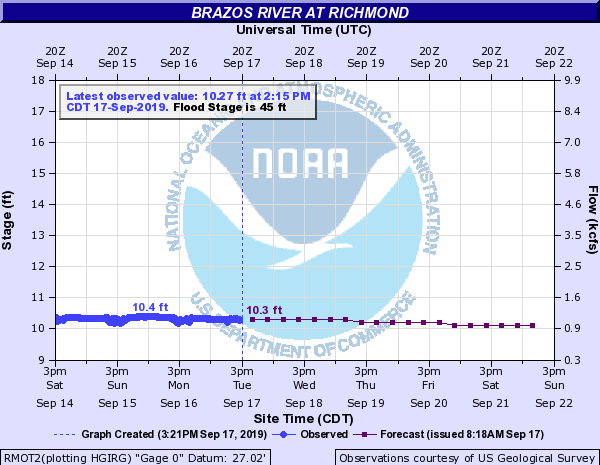Severe Weather Update & Flooded Roads
As of 2:00 pm today, portions of the intersection of University Boulevard and LJ Parkway are temporarily impassable due to street flooding. The road conditions will change frequently, as the intensity of rainfall changes over time.
Fort Bend County LID No. 19 emergency response team is monitoring the Brazos River and local rainfall predictions of this event. As of 2:00 p.m. today, the accumulated rainfall in the LID area is approximately 2.8 inches in the past 24 hours with 2.5 inches falling in the past hour. NOAA predictions are for 2 to 3 more inches over the next 6 hours.
With Brazos River at approximately 12 feet, the District will remain in full gravity flow conditions. Gravity flow means that free drainage outfall to the Brazos River is available, and the LID’s drainage is not dependent on pumping.
Should intense cells fall over the area, isolated street ponding may occur, but should clear quickly after the rains ends. All usual precautions for heavy rainfall should be taken by residents, including avoiding travel by car if possible. Further postings will be made should the NOAA predictions change significantly.


